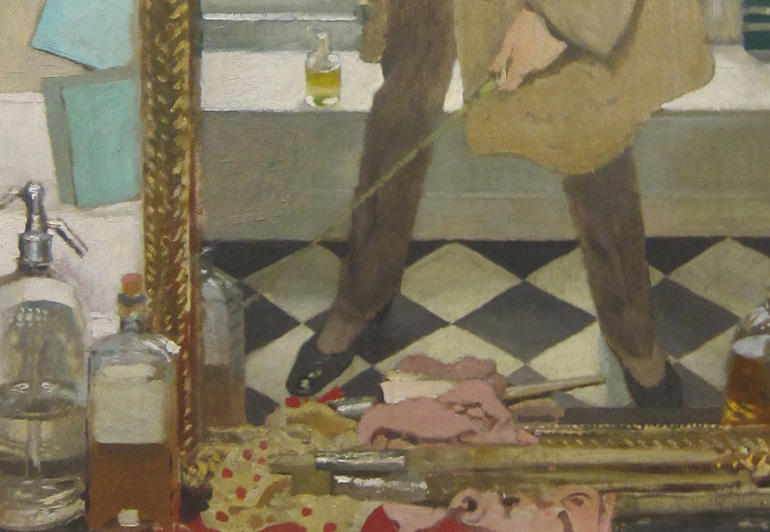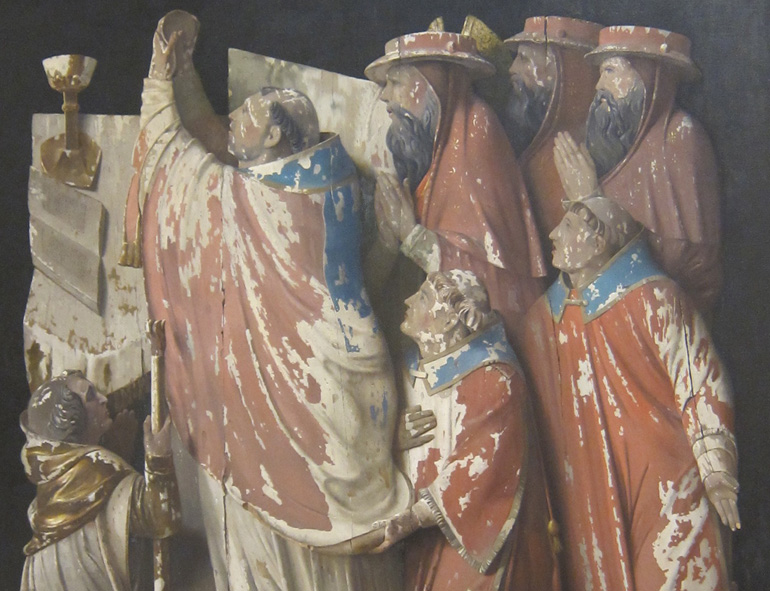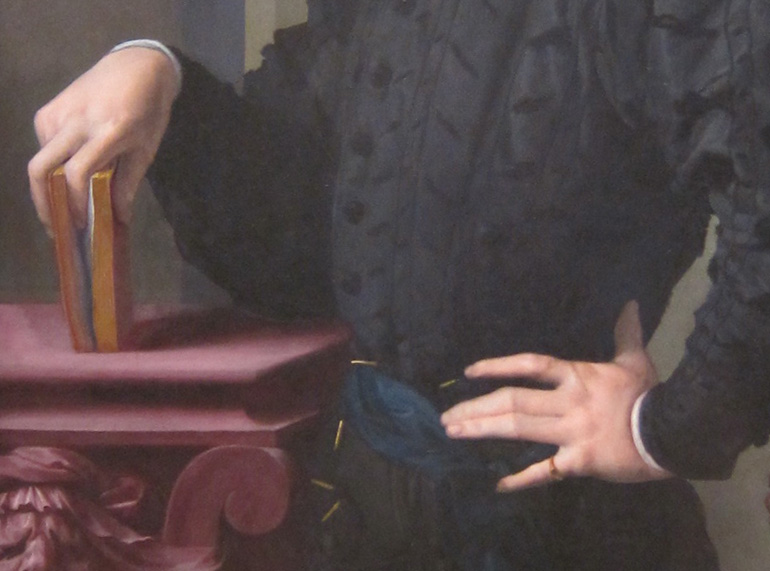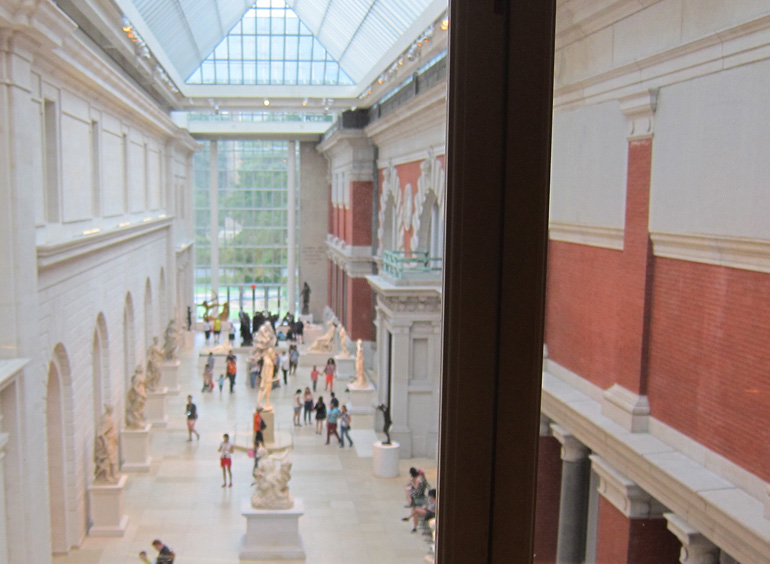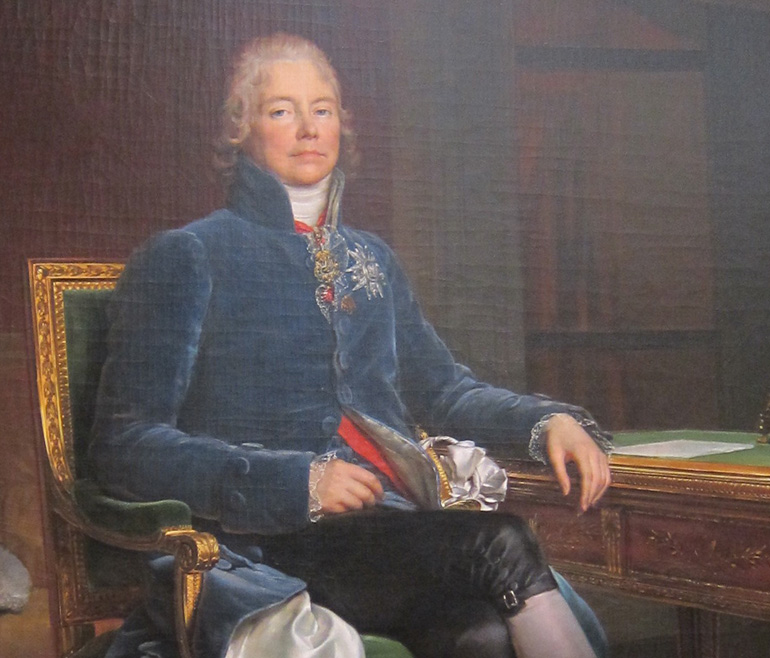Gotham Diary:
Performance Art
12 September 2013
The first thing to say about Mark Edmundson’s new book, Why Teach? is Hear, hear! Well done! Couldn’t agree more. With just about everything, but especially the important things.
Because the second thing to say is that the book makes me glad that I didn’t have Edmundson for a teacher, because my resistance to his style, in those tender undergraduate years, would have induced me to disagree with his principles, into agreement with which I’ve grown steadily over the years. Also, I’m yet again confirmed in my view that I should have been wretched in academia. I expect that, even if I had been capable of mustering the discipline to attain a position on any respectable faculty, I’d have set out to be the sort of teacher whom Edmundson halfway wishes he were — and not the successful star prof that he has become. I’d have been intimidating — well, I’m that before I even open my mouth; but, when I do open my mouth, I do little (apparently) to counter the first impression. I should have been impatient. I’d have been enthusiastic — I’d have incited arguments among the students. All no-nos, according to the sage advice set forth in Edmundson’s brilliant satire, “A Word to the New Humanities Professor.”
Like irony, metaphor can make matters confusing and cause people to feel uncomfortable. Metaphor and irony can make students feel stupid and, at a good college, where students have high SAT scores, no one can accurately be described as stupid. Metaphor, like irony, can contribute to self-esteem problems. But once one has realized that the purpose of writing is to convey information and not to unfold or to discover the life of the inner self, or to create original visions of the world (we now know that there is no such thing as originality), then problems associated with metaphor and other mannered forms of writing tend to disappear.
This is my favorite piece in the assortment of essays that fill out Why Teach?, possibly because Edmundson is writing in an assumed voice, for satirical purposes, and not being his gregarious, manly self. How much that self is just another persona, I have no idea, but it clicks with the autobiographical material strewn throughout. Edmundson grew up in a near-nightmare world, working-class Medford, Massachusetts, where high school was a training ground for life on a factory floor. Edmundson himself was an unexceptional member of his class, not interested in academics and a middling football player, bound for a soul-sucking job just like the ones his father and his uncles had. Then his life was touched by a rather elfin-sounding Harvard grad who came to teach at the school — for one year, before heading off to law school, marriage, and the Maine woods. Doug Meyers, the hero (and eponym) of “My First Intellectual,” opened a view of the world to his students, and Ednundson, at least, climbed through it.
My second-favorite piece in Why Teach? is “Do Sports Build Character?” It was something of a thrill to read. The question is a vexed one for me, or at any rate it was until Edmundson deconstructed it. The first half of his essay concludes that, yes, they do. “Who could doubt it?” My breathing was shallow and my head hung low. Edmundson’s paean to perseverance made me ashamed of my lifelong disinclination to pursue the awkward and the tedious. But the second half of the piece describes the cost of this character building, and, when it was over, I was feeling more robust. Edmundson talks about the wrath of Achilles, how the hero’s pursuit of thymos makes a madman of him, capable of anything — anything but reflection. And he goes further.
When the season ended, I found myself recreating the feeling of football in a string of fistfights and mass brawls. I didn’t become a thug — far from it. But I did let the part of me that sought power and standing — over others — go way too far. Having been down that road, the chances of myt taking it again are greater, I suspect, than they are for other men. Once that path has been cut, it stays open. I once shocked a colleague, and myself, by admitting that if someone ran a light and smashed up my car (which I loved more than I should), the chances of my popping him in the jaw were probably much greater than the chances of the average professional guy doing so. Once the punch in the mouth is part of your repertoire — once you’ve done it a few times as an adult — it never goes away. (90-91)
I shivered when I read this. It was so much more candid than anything I had expected to read, something that I had never heard but always suspected to be the case. Edmundson is a very sensitive man and a passionate reader. But he has popped a few guys in the mouth. I say “but,” because that sets him apart from me. He has been bloodied by thymos. I could just as well say “and,” meaning that Edmundson is just the fellow to show the roughnecks of the world, who are, after all, far more common than people like me, the beauty of humane letters. Not to mention that he’s clearly the kind of guy who can inspire pretty girls to believe that a man who memorizes Emily Dickinson is not necessarily a dork.
***
I believe I mentioned The Poseidon Adventure yesterday, so I apologize for invoking the image of a sinking ship two days in a row, but that is precisely the specter that hangs over Why Teach? The possibility of liberal education is sinking, its hull breached by the cool culture of television, a torpedo fired by the corporate-consumerist pseudoculture that shows little sign of being on its last legs but at the same time an ever-dwindling means of support. (That would be jobs.) I don’t want to paraphrase what Edmundson has to say about all of this; I want you to read his book. If you’re too cheap to buy it, you can just scroll back through the years on this site, keyword “television.” We don’t say precisely the same things — our styles are very different — and I’m grateful that Edmundson repeatedly faults television for conveying a spurious “knowingness” to viewers, especially young ones who are defenseless against television’s pretense of presenting complete accounts of things. Knowingness — that’s an important critical tool. But behind what I say and what Edmundson says there’s what Neil Postman said, in Amusing Ourselves to Death (1985), in the course of analyzing a “discussion” program that featured such luminaries as Henry Kissinger and Elie Wiesel.
When a television show is in process, it is very nearly impossible to say, “Let me think about that” or “I don’t know” or “What do you mean when you say…?” or “From what sources does your information come?” This type of discourse not only slows down the tempo of the show but creates the impression of uncertainty or lack of finish. It tends to reveal people in the act of thinking, which is as disconcerting and boring on television as it is on a Las Vegas stage. Thinking does not play well on television, a fact that television directors discovered long ago. There is not much to see in it. It is, in a phrase, not a performing art. But television demands a performing art, and so what the ABC network gave us was a picture of men of sophisticated verbal skills and political understanding being brought to heel by a medium that requires them to fashion performances rather than ideas. … At the end, one could only applaud those performances, which is what a good television program always aims to achieve; that is to say, applause, not reflection.
Ever since I read this passage, I have assumed that the genuinely intellectual potential of television is zero. By all means, entertain me, if you can, but don’t try to teach me anything! And this is precisely the attitude that Edmundson finds prevalent among his highly gifted students.
In fact, thoughtful discussion requires participation; for mere audiences, it is no better than a spectator sport. If your mind is not on the line for intelligent observation and provident caution, then it is not really processing the conversation. It’s really that simple. Just as you are not in danger of being popped in the mouth if you are sitting outside the ring, so you are not in danger of having an idea of your own if you are watching a panel discussion. This isn’t to say that you can’t learn a lot of useful information that way, particularly if you’re good at taking notes. But the information won’t really be yours until you act on it, later on and somewhere else. We have a term for actual thoughts that occur to people who are watching other people talk without being able to talk themselves: mind wandering.
The distance between Mark Edmundson’s satirical note to the incoming professor and Neil Postman’s post mortem is, linguistically and stylistically, very small. Postman was clearly outraged; Edmundson has packaged his outrage. I should be ashamed of myself for preferring the piece to all the others, because it’s the one in which Edmundson most straightforwardly performs.


